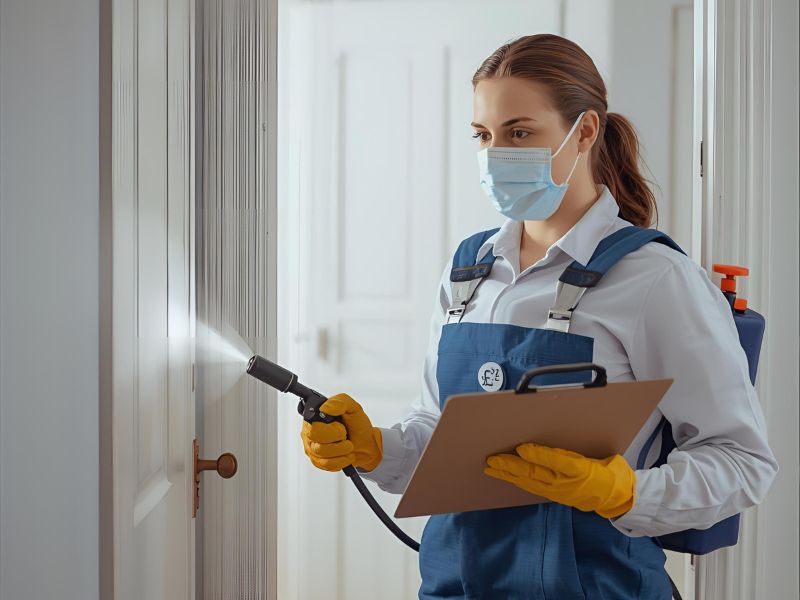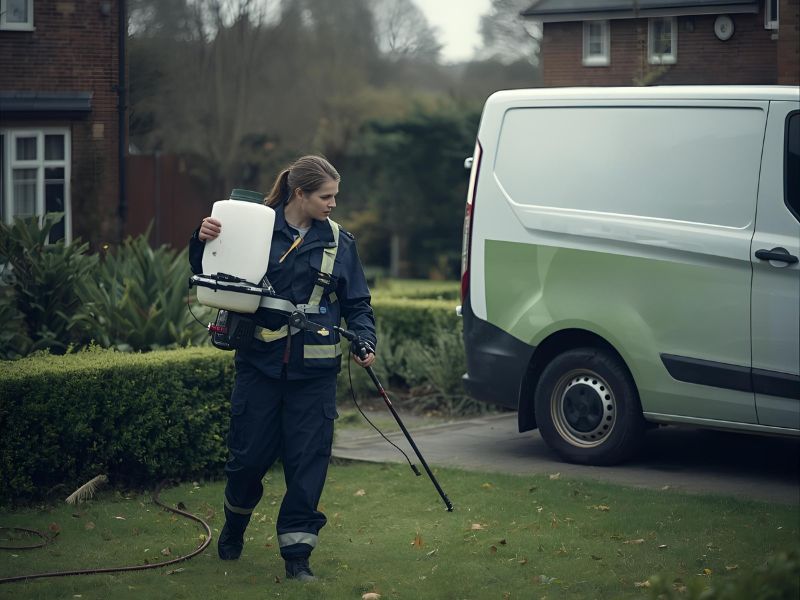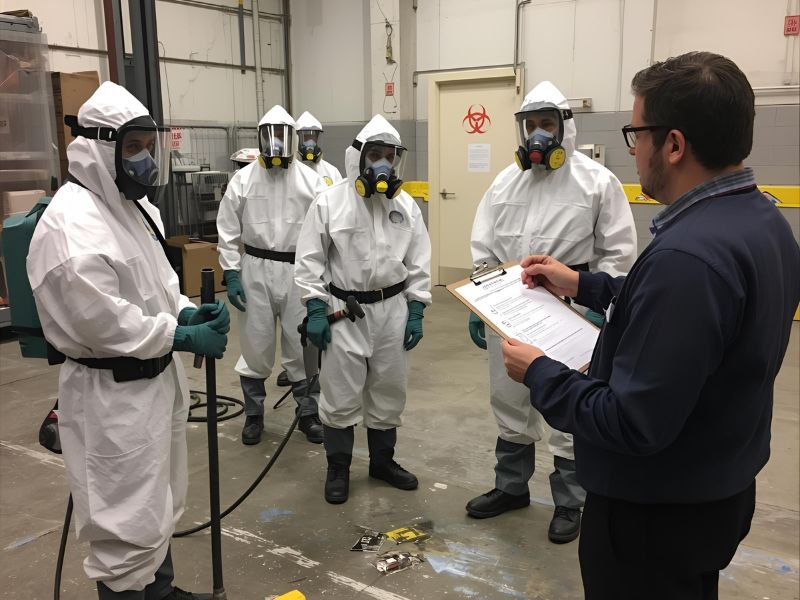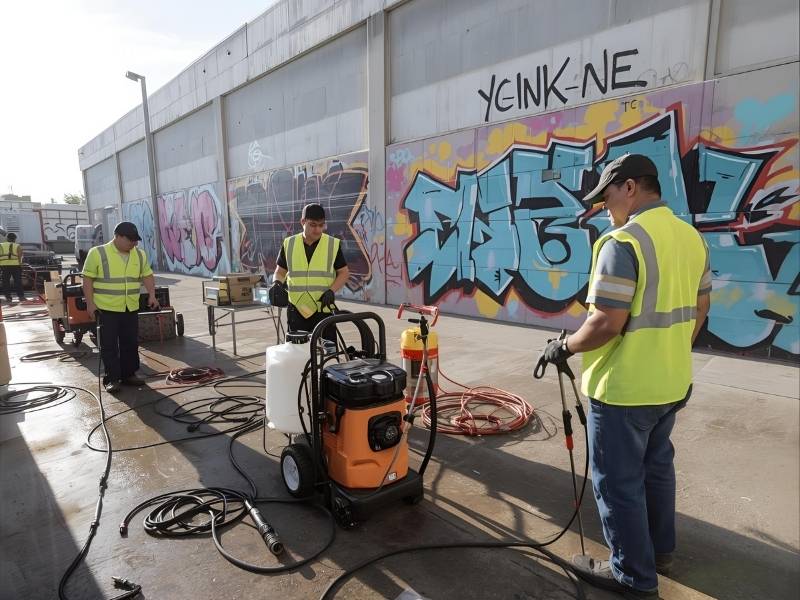

The pest control industry offers solid career prospects with competitive salaries that consistently exceed minimum wage requirements. With the UK's National Living Wage rising to £12.21 per hour in September 2025, pest control technician positions provide attractive earning potential for those considering this essential service career.
Current market data reveals pest control technician salaries averaging £29,077 annually across the UK. Entry-level positions typically start around £25,396, while experienced professionals can earn up to £35,413 in senior roles. The average salary places pest control work well above the minimum wage threshold of £24,500 for full-time positions.
London commands a modest premium with pest control technician salaries averaging £30,418 per year. However, the cost of living differential means that opportunities throughout England often provide better value. Major cities like Manchester, Birmingham, and Leeds offer competitive packages without the capital's expense burden.
81 million brown rats create massive demand for professional pest control services
Critical training for expanding services
Regional salary breakdown shows:
Industry data indicates that pest control technician roles consistently outperform basic salary expectations, with most positions offering additional benefits that enhance the total compensation package.

New pest control technicians typically start on £25,000-26,000 annually, representing a solid foundation above minimum wage standards. This basic salary reflects the specialised nature of pest management work and the responsibility involved in protecting public health.
Career progression follows a clear trajectory. After two years of experience, technicians generally see their pay increase to £27,000-29,000. The industry rewards expertise and reliability, with employers recognising the value of experienced staff who can handle complex infestations independently.
Senior pest control technicians with 5+ years experience earn £32,000-35,000, reflecting their ability to manage difficult cases, train new staff, and take on supervisory responsibilities. Some achieve even higher compensation through specialisation or management roles.
The career path typically progresses:
This progression demonstrates how pest control offers genuine advancement opportunities for dedicated professionals who invest in their skills and training.
Geographic location significantly influences pest control technician earnings across England. Urban areas generally offer higher salaries due to increased demand and higher living costs, while rural positions may provide other benefits like company vehicles and fuel cards.
London's pest control market commands the highest salaries, but the differential is smaller than many industries. The £1,500-2,000 premium barely compensates for the capital's housing costs, making regional opportunities increasingly attractive to many professionals.
High-demand areas include:
The job market shows consistent demand across all locations, with pest problems requiring year-round attention. This stability makes pest control an attractive career choice regardless of geographic preference.
Many companies offer location flexibility, allowing technicians to work across multiple areas and gain diverse experience. This variety helps build expertise while potentially accessing higher-paying assignments in different regions.

Specialised pest control services command premium rates, with technicians earning 15-25% above basic salary levels. Rodent control specialists, fumigation experts, and those handling dangerous pest situations can access these higher-earning opportunities.
Commercial pest control typically pays more than residential work, as businesses require comprehensive service agreements and rapid response capabilities. Restaurants, food processing facilities, and healthcare premises need expert attention that commands premium pricing.
Technical specialisations that increase earning potential include:
Some technicians develop expertise in specific pest types like bed bugs, wasps, or birds, building reputations that allow them to charge premium rates. These niches often involve more complex treatments requiring extensive training and specialist equipment.
The industry values professionals who stay current with regulations, new treatment methods, and safety protocols. This commitment to professional development directly translates into higher compensation and better job opportunities.

Becoming a qualified pest control technician requires specific training and certification, representing an investment in long-term earning potential. The industry offers multiple pathways, from apprenticeships to intensive courses provided by specialists like Biohazard Cleaning Courses. For newcomers, one of the first considerations is understanding how to get pest control licence, as holding the proper credentials is essential to work legally and build trust with clients.
Essential qualifications include:
Training costs vary but represent excellent value given the salary potential. Most employers support ongoing education, with many covering course fees and providing paid study time. This investment approach recognises that well-trained technicians deliver better results and command higher rates.
Apprenticeship programmes combine work experience with formal education, allowing new entrants to earn while learning. These typically last 12-18 months and lead directly to full technician positions with competitive starting salaries.
Continuing professional development remains important throughout careers. Regular training updates ensure technicians stay current with new methods, regulations, and safety requirements. This ongoing education supports salary progression and career advancement opportunities.
The industry offers clear pathways for those willing to invest in their professional development, with training costs quickly recovered through improved earning potential.
81 million brown rats create massive demand for professional pest control services
Critical training for expanding services
Most pest control positions include valuable benefits beyond the basic salary, significantly enhancing total compensation value. Company vehicles are standard, eliminating commuting costs and providing professional equipment transport capability.
Common benefit packages include:
Many employers offer pension contributions, health insurance, and paid training time. These benefits add substantial value to the total compensation package, often worth £3,000-5,000 annually.
Overtime work is common, particularly during peak seasons or emergency callouts. Premium rates typically apply, allowing motivated technicians to significantly boost their annual earnings. Some professionals increase their income by 20-30% through strategic overtime acceptance.
Fuel cards eliminate personal vehicle costs while providing the flexibility of mobile work. This benefit proves particularly valuable given current fuel prices and the extensive travel requirements of pest control roles.
The reliable nature of pest control work means consistent income throughout the year, unlike seasonal trades that experience quiet periods. This stability supports financial planning and career progression.
The pest control industry shows strong growth prospects, driven by increased awareness of health risks and stricter regulatory requirements. Climate change and urbanisation continue expanding pest problems, creating sustained demand for professional services.
Market growth drivers include:
Employment opportunities exist nationwide, with particular strength in urban and commercial sectors. The industry proves recession-resistant, as pest problems require immediate attention regardless of economic conditions.
Career advancement opportunities extend beyond frontline technician roles. Experienced professionals can progress to supervisory positions, area management, or business ownership. Some establish independent practices, building on their expertise and customer relationships.
The industry increasingly values environmental awareness and sustainable practices. Technicians who develop expertise in integrated pest management and eco-friendly approaches find themselves well-positioned for future opportunities.
Technology integration creates new specialisations in monitoring systems, data analysis, and customer relationship management. These developments offer additional career pathways for technically-minded professionals.

Technical expertise directly correlates with earning potential in pest control work. Professionals who master advanced techniques, understand pest biology, and stay current with treatment innovations consistently achieve higher compensation levels.
High-value skills include:
Customer relations skills prove particularly valuable, as repeat business and referrals drive industry success. Technicians who excel at explaining treatments, providing prevention advice, and maintaining professional relationships often receive performance bonuses and advancement opportunities.
Understanding business operations helps technicians contribute beyond basic service delivery. Those who can identify upselling opportunities, manage schedules efficiently, and maintain accurate records demonstrate value that employers reward with higher compensation.
Technology skills become increasingly important as the industry adopts digital solutions for scheduling, reporting, and customer management. Technicians comfortable with these systems position themselves for advancement in a modernising industry.
Safety consciousness and regulatory compliance expertise are essential given the controlled substances and potential hazards involved in pest control work. Professionals with strong safety records access better positions and command premium compensation.
Management opportunities offer significant salary increases for experienced pest control technicians ready to take on leadership responsibilities. Area managers typically earn £35,000-45,000, while regional positions can reach £50,000+.
Common progression pathways include:
Some professionals pursue business ownership, establishing independent pest control companies. For those researching starting a pest control business UK, this pathway offers the chance to move beyond employment into entrepreneurship, with substantial financial returns possible for successful operators. While requiring significant investment and business skills, successful operators can achieve substantial financial returns exceeding employed positions.
Training and mentoring roles offer alternative advancement paths for those preferring to share expertise rather than manage operations. Training coordinators and assessors earn competitive salaries while contributing to industry development.
Consultancy work represents another progression option, with experienced professionals advising on complex pest management programmes for large organisations. These roles often command premium daily rates and provide schedule flexibility.
The industry values loyalty and expertise, with many companies promoting from within rather than external recruitment. This approach creates clear advancement pathways for dedicated professionals willing to develop their skills and take on additional responsibilities.

Strategic career planning maximises earning potential in the pest control industry. Professionals who actively pursue training, build specialist skills, and demonstrate reliability consistently achieve above-average compensation levels.
Key strategies include:
Professional networking within the industry creates opportunities for career advancement and higher-paying positions. Joining professional associations, attending training events, and maintaining relationships with suppliers and customers can lead to new opportunities.
Regular salary reviews with employers help ensure compensation reflects growing expertise and market rates. Professionals who can demonstrate their value through customer feedback, safety records, and technical competence often secure pay increases above standard levels.
Geographic flexibility opens access to better-paying opportunities. Willingness to work in different areas, particularly higher-demand commercial zones, can significantly boost earning potential while providing valuable experience.
Developing business acumen helps technicians understand the commercial aspects of pest control work. This knowledge supports advancement into management roles and provides foundation skills for eventual business ownership.
81 million brown rats create massive demand for professional pest control services
Critical training for expanding services
Ready to start your pest control career or advance your existing skills? Biohazard Cleaning Courses provides comprehensive training programmes designed to maximise your earning potential in this growing industry.
Our expert-led courses cover all aspects of pest control from basic certification through advanced specialisations. We understand the industry's salary expectations and structure our training to help you access the highest-paying opportunities available.
Whether you're starting your career or looking to specialise in high-demand areas, our training programmes provide the expertise employers value and compensate accordingly. Join the thousands of professionals who have advanced their careers through our proven training methods. Contact Biohazard Cleaning Courses today for your free quote and discover how professional training can accelerate your path to higher earnings in the pest control industry.





